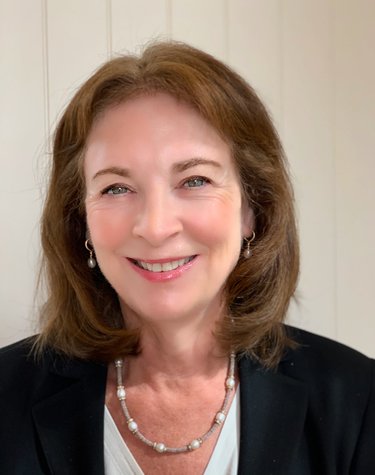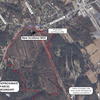Brave children fleeing terror have a friend in Christine Galvin
NEW SCOTLAND — Christine Galvin helps abused and neglected children who have fled their homelands in hopes of building a better life in the United States.
She has spent up to a thousand hours each year for more than five years working, for free, to help them.
Asked why, Galvin says simply, “They all need help.”
Pressed further, she says, “Because I speak Spanish and because I’m a lawyer, it’s a perfect set of skills to do this kind of work. So how could I not?”
Galvin, who lives in New Scotland, has responded to prejudice against immigrants, undocumented workers, writing in a letter to the Enterprise editor, “Undocumented immigrants are contributing members of our society and deserve to be treated as such.”
She says in this week’s Enterprise podcast of the kids she represents, “They work hard and they do jobs nobody wants to do.”
Galvin works through The Legal Project in Albany, which was created in 1995 by the Capital District Women’s Bar Association to help the working poor with their civil legal needs.
“Its mission,” says Galvin, “is really to provide access to justice for everyone, but in particular people who cannot afford to pay for legal services.”
Galvin explains that some people who are just above the poverty line don’t qualify for programs for the indigent yet can’t afford to pay a lawyer. The Legal Project offers help in areas including domestic violence, homeowner protection, campus violence, and human trafficking in addition to the sort of help for immigrants that Galvin provides.
She is in the process of helping over 70 children on the long legal journey to gain citizenship in the United States. And, she says, there is a “huge backlog.”
Galvin, who says she grew up as “just a regular kid in a subdivision” in suburban Rochester, studied Spanish in grade school and high school and then spent her junior year of college in Valencia, Spain.
This was in 1974 and 1975 when Franco was still Spain’s dictator. “It was a very repressed country at the time …,” recalled Galvin. “Spain was pretty much a Third World European country … dominated by police, military.
“It was a Catholic country. There was no permitted birth control. Children born out of wedlock had no status in society …You could not speak out against the dictator at any time or you would risk being arrested.”
Student demonstrations at the University of Valencia, which Galvin attended, led to riot police arriving on campus. “All kinds of bad things ensued,” she said.
Galvin then enrolled in a master’s program in Spanish at Stony Brook University, which brought her to Colombia, South America. She arrived after a period of time called The Violence, and worked in a textile firm as well as attending the state university there. She also traveled extensively in Colombia, Ecuador, and Peru.
These travels along with her legal career, primarily representing injured people, has prepared Galvin for her current retirement work. She is used to helping people through some of the worst times of their lives, offering steadfast resolve as well as legal expertise.
“All of the children I represent have been victims of abuse, neglect, or abandonment by a parent,” says Galvin. “And they are all ages. I have children that are 5 years old, 10 years old, but the majority of them are teenagers.”
They all qualify for special immigrant juvenile status, which was created by Congress to “provide assistance to these children who have been victims, basically, of their parents,” Galvin explains. To qualify, they must be under 21, unmarried, and “it is not in their best interest to return to their country of origin.”
Many of them cross into the United States, typically from Mexico, without being caught and find their way through networks of other immigrants to upstate New York. Others, who are caught at the border, are placed in facilities operated by the Office of Refugee Resettlement, which looks for a sponsor to whom the child can be released.
Galvin has clients in Washington, Rensselaer, Saratoga, Columbia, and Greene counties as well as in Albany County where she lives. Her first step is to file a petition in a local court so the child can have a guardian and the court can issue an order establishing the child’s eligibility for special immigrant juvenile status.
“From there, I have to apply to U.S. citizenship and Immigration Services for that status,” says Galvin. “If they are from a country where visas are available right away to apply for permanent residency, I can simultaneously file a petition for work authorization and permanent residency.”
Those countries include Colombia, Ecuador, and Venezuela, but most of Galvin’s clients are from Central America and Mexico for which there are very long waits for permanent residency. It can take years to get permanent residency, often referred to as the green card.
“All of my children, with the exception of one that we’re still waiting for and we don’t know what the delay is, have all been granted special immigrant juvenile status and, thankfully for a court decision this year in March, as soon as they are approved for special immigration juvenile status, they can apply for work authorization,” said Galvin. Before that, they had to wait a year for permanent residency.
Most of her clients, Galvin said, work in restaurants.
After five years of being a permanent resident, a child can apply for citizenship. “So it’s a very long road,” says Galvin.
She is with her clients every step of the way. When she first meets clients, Galvin will often give them gift cards for a supermarket. “I teach them how to use it so that they can at least have food,” she said. She has also helped them get furniture through different churches and alerted them to food banks. And, she answers all sorts of questions and requests, both legal and personal.
“They have an unbelievable ability to meet other immigrants wherever they are,” she said. “And eventually those immigrants will help them find employment somewhere.”
Most of her clients, she said, come from extreme poverty, live modestly here, and work to send money home. “If their parent is beating them, which is not uncommon … or their father has abandoned them, the child has had to go out and work on farms,” she said, leaving school to pick bananas or coffee, making barely enough to survive.
Some of her clients come from dangerous areas with a great deal of violence caused by political disputes or drug trafficking and she works with several children whose parents have been murdered.
Asked to tell the story of just one of her clients, Galvin says, “All of their stories are really sad.”
She chooses the story of a family living in a small village in the mountains where the only means of transportation is to walk. This child was walking with his family from a funeral in a violent area of Mexico when the family was ambushed.
The children and the mother survived but the father was murdered. After they walked the long distance home, within a month, the grandmother was murdered.
“This happens frequently,” said Galvin. “They end up with no one to support them. You know, women in Latin America, particularly in Central America and Mexico, don’t have a lot of opportunities to work to support their families …
“Sometimes a family member might invite them to live with them in their home but that usually doesn’t last long and then they’re asked to leave. I’ve had kids who had to sleep outside for a number of days or maybe a month with nowhere to live with their family.”
Galvin says of those she helps, “These children are really brave. They don’t complain … We just carry forward.”
****
Donations to The Legal Project may be made through the not-for-profit’s website: https://legalproject.org/.


